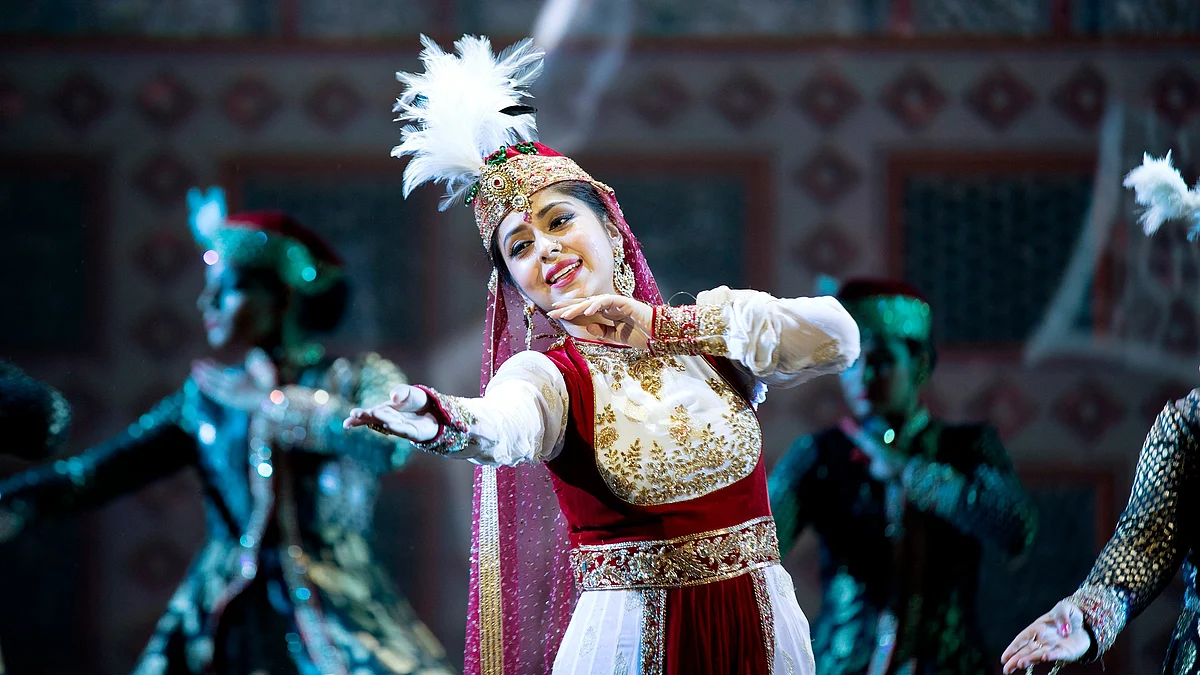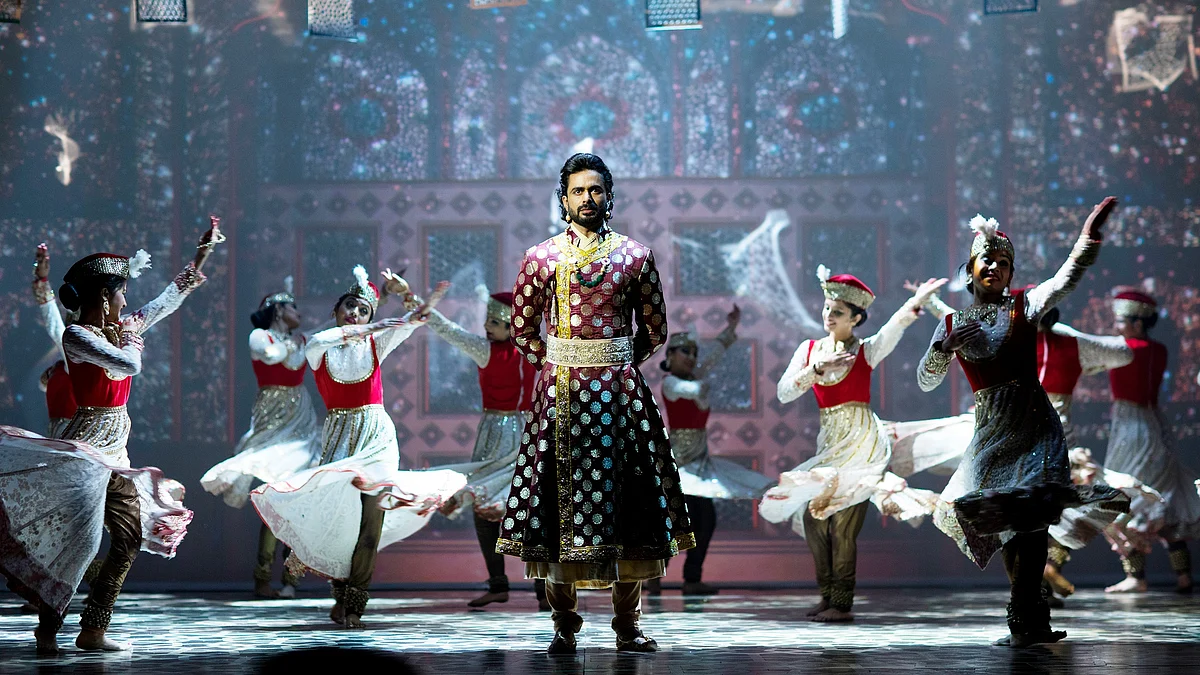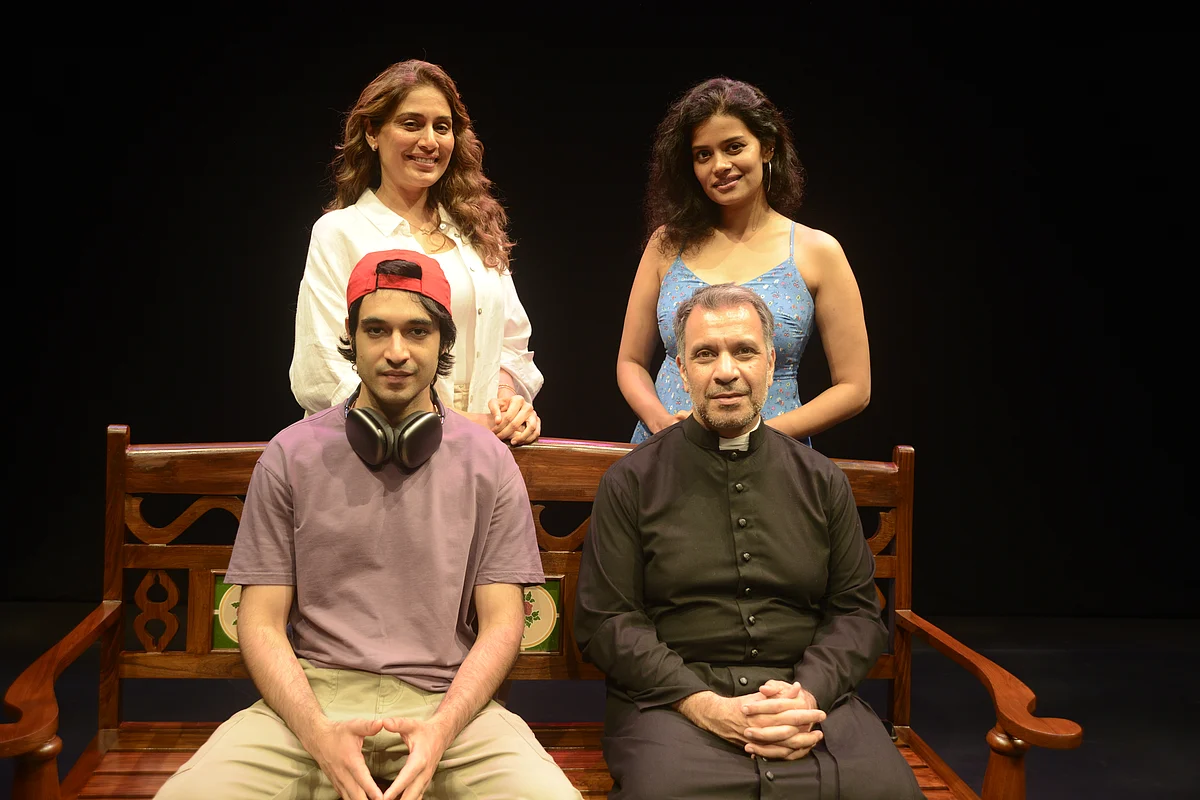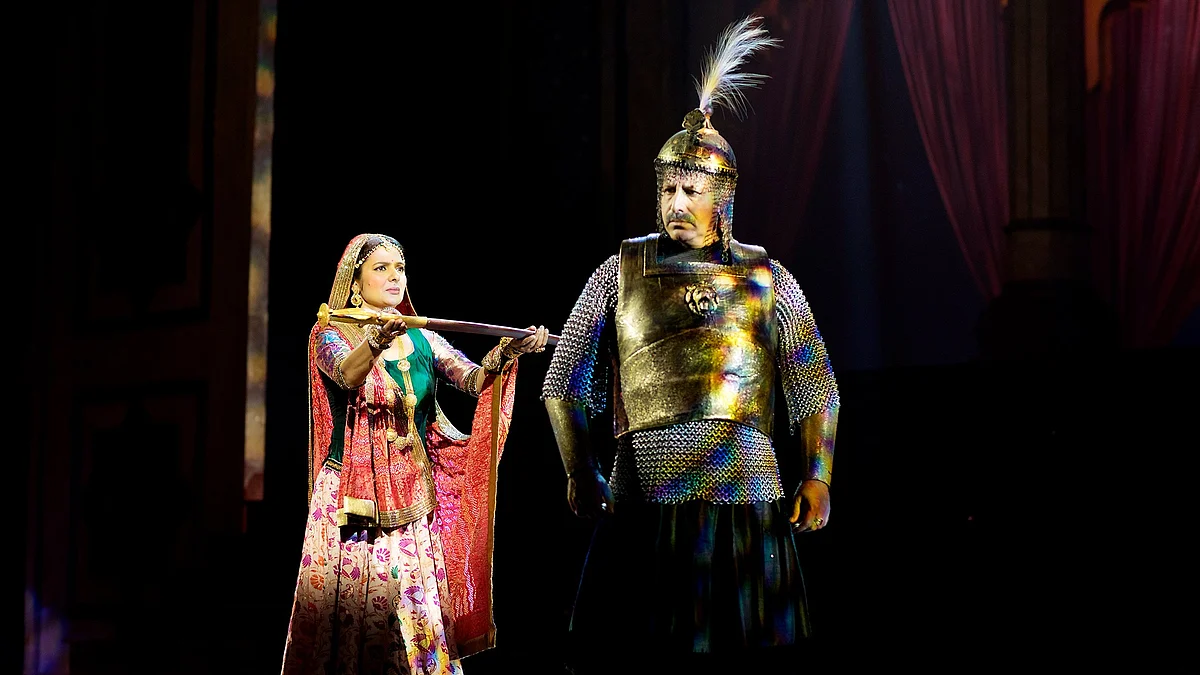For theatre director Feroz Abbas Khan, all the world’s a stage. Even on a break, his mind is constantly buzzing with future commitments, fresh ideas and potential scripts. Two of his projects are making a comeback soon. After a warm reception at the Nita Mukesh Ambani Cultural Centre (NMACC) in May, his new play Letters Of Suresh will return for five shows from July 26 to 28 at the Prithvi Theatre. From August 16, his popular Mughal-e-Azam: The Musical will begin its second US tour, covering six cities. “They may be re-runs, but I treat every performance as if it’s the first,” he says.
Both are contrasting productions. While Letters Of Suresh is an intimate, dialogue-centric English play written by American playwright Rajiv Joseph, Mughal-e-Azam is a lavish Hindi-Urdu adaptation of the iconic 1960 K. Asif film, with heavy reliance on lavish sets, music, dance and costumes. In many ways, they symbolise the wide range in Khan’s theatre journey, which includes the much-admired productions Tumhari Amrita, Salesman Ramlal, Saalgirah, Mahatma Vs Gandhi and The Great Indian Musical: Civilisation To Nation.

Mughal-e-Azam |
Most audiences would list Mughal-e-Azam and Tumhari Amrita as their favourites. Mughal-e-Azam was admired for its sheer scale, with audiences leaving the hall singing those classics composed by Naushad. The latter created an impact with just two actors (Shabana Azmi as Amrita and Farooq Shaikh as Zulfi) who read letters. However, Khan has his own choice of favourites. “I would go for Salesman Ramlal, where Satish Kaushik gave a legendary performance, and Civilisation To Nation, which was not a play but a unique concept tracing India’s history through dance, drama and music,” he says.
Though Khan has directed the films Gandhi My Father and Dekh Tamasha Dekh, theatre has always been his first love and true calling. He recalls, “I lost my father when I was seven, and my life totally changed. I wanted to do things outside of the usual, to deal with my loss. I thus participated in elocution activities at St Joseph’s Juhu, and that slowly got me into plays.”
Khan started as an actor, and his first play was in Marathi. At Narsee Monjee College, he used theatre as a means to escape from reality. “I got to know Paresh Rawal, Mahendra Joshi, Arundhati Nag and Shafi Inamdar. I won many awards as an actor. Then, Prithvi Theatre came up in 1978 and meeting Jennifer Kapoor was a turning point,” he says.
Khan acted in the successful Gujarati musical Khelaiya, and may have continued as an actor. But with Prithvi, he got involved in other activities, and helped organise the annual festival. He says, “Jennifer dreamt of having a repertory company with its own cast and set of directors. Prithvi attracted the best talent — Satyadev Dubey, Nadira Zaheer Babbar, Pankaj Kapur, Paresh Rawal, Dinesh Thakur, Bhakti Barve. It became a community.”

Mughal-e-Azam |
The youngster was inspired by Jennifer Kapoor’s approach and dedication. After she passed away in 1984, he assumed the role of artistic and festival director at Prithvi. Eventually, he started his own theatre company Platform. One of his dreams was to present Peter Shaffer’s play The Royal Hunt Of The Sun, which was about the Spanish conquest of Peru. He looked around for directors, but not finding the appropriate choice, decided to direct it himself. Next, he directed the Gujarati play Eva Mumbai Ma Chaal Jaaye, which established him as a director.
Tumhari Amrita is based on A.R. Gurney’s play Love Letters, and though Khan liked the concept, he found it too American. When a tribute was planned for Jennifer Kapoor in 1992, he approached writer Javed Siddiqui, who agreed to adapt it in Hindi-Urdu. Having seen their films, he thought Farooq and Shabana would portray the couple perfectly. The plan was to do only four shows, but the play lasted 21 years, till Shaikh passed away.
Khan did another marriage-themed play, Saalgirah, featuring the real-life couple of Anupam and Kirron Kher. He was also keen to adapt Arthur Miller’s Death Of A Salesman, which led to Salesman Ramlal. He recalls, “I had been studying how Miller wrote the play, and that helped. Satish Kaushik was the perfect choice. He had his own parallel story as his father was a salesman.” A huge admirer of Mahatma Gandhi, Khan also worked on the play Mahatma Vs Gandhi about the troubled relationship between the leader and his eldest son Harilal.

Letters to suresh |
The idea of Mughal-e-Azam was suggested by senior journalist Deepa Gahlot, who then led the theatre division of the National Centre For The Performing Arts (NCPA). They also had to approach the Shapoorji Pallonji Group, which had the rights of the original film. Deepesh Salgia of Shapoorji agreed on the condition that the play kept up the film’s tradition.
“The basic content wasn’t the issue, but adapting it to the stage had its own challenges. One had to find performers who could act, sing and also have a good stage presence. For Salim, Anarkali, Bahar and Jodhabai, we needed two performers for each role. A lot of effort went into the choreography and the costumes,” he says.

Mughal-e-Azam |
The next project, Civilisation to Nation, was specially created for the NMACC opening in 2023. “It involved a lot of research and different languages, and we incorporated everything in 85 minutes,” says the director.
His latest play, Letters Of Suresh was chosen simply because he loved the script. He adds, “It is a rare type of writing, and it had an impact on me. I was aware it would be for a limited audience, but I wanted to do something that would put the playwright at the centre.”
Khan believes the most crucial stage is during the rehearsals. He elaborates, “I try to detach myself from everything at that time. As a director, you keep getting new ideas. As an actor, you memorise lines, practise your part, improvise and pretend you are the character, till he or she becomes ingrained in you. In the actual performance, one is not acting, but living the role.” It’s an approach that has worked throughout his illustrious career.


.jpg)
.jpg)





.jpg)
.jpg)